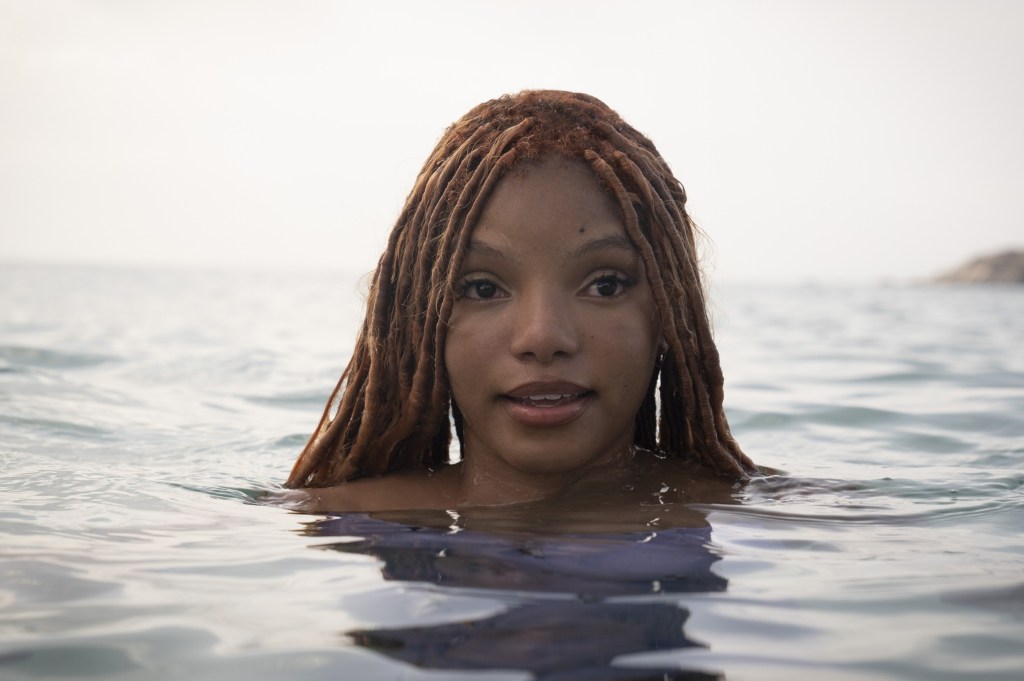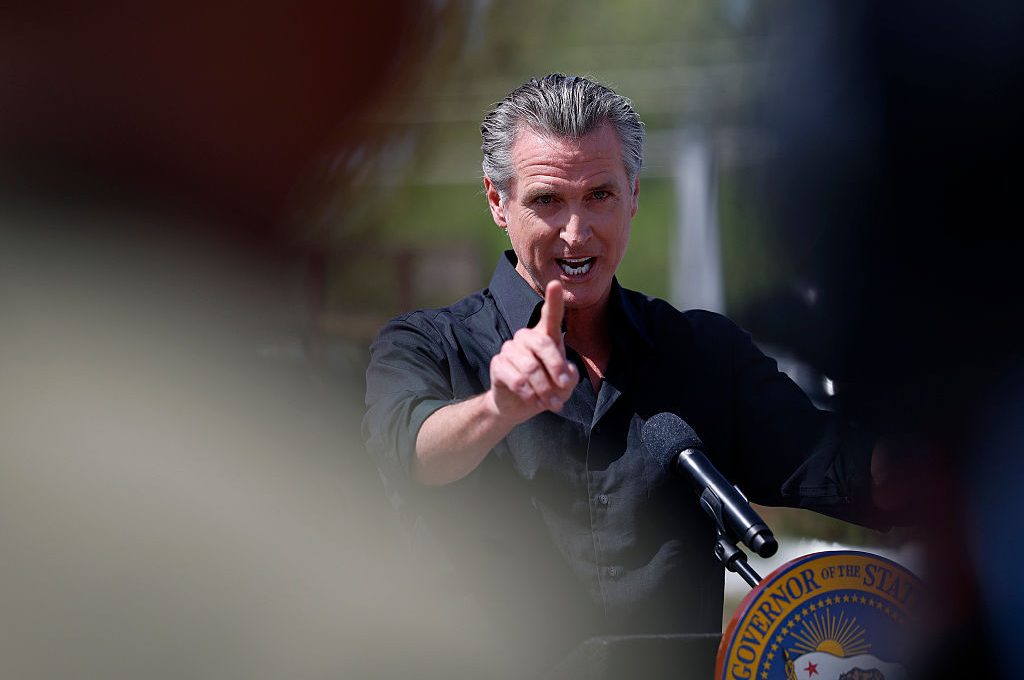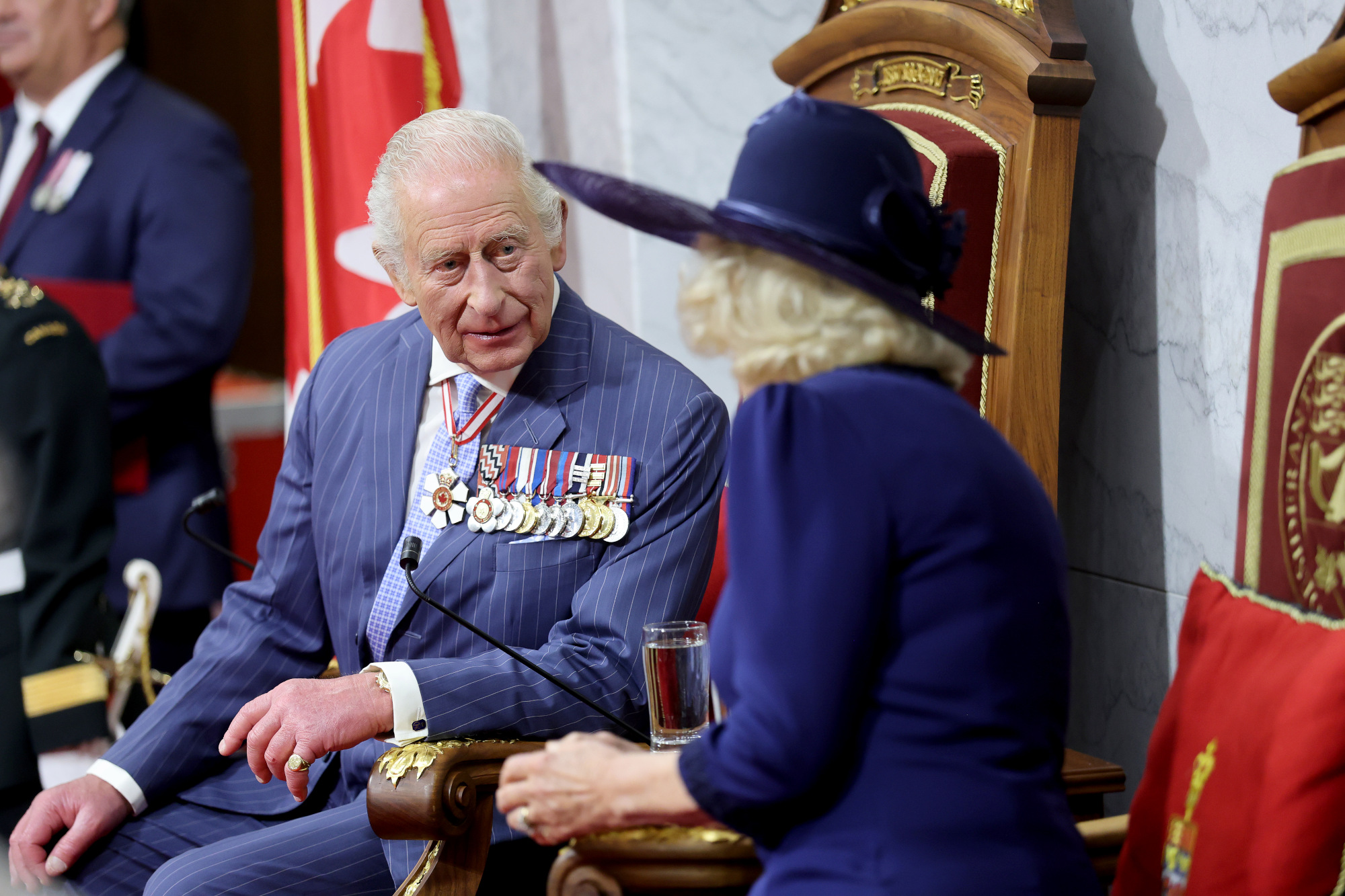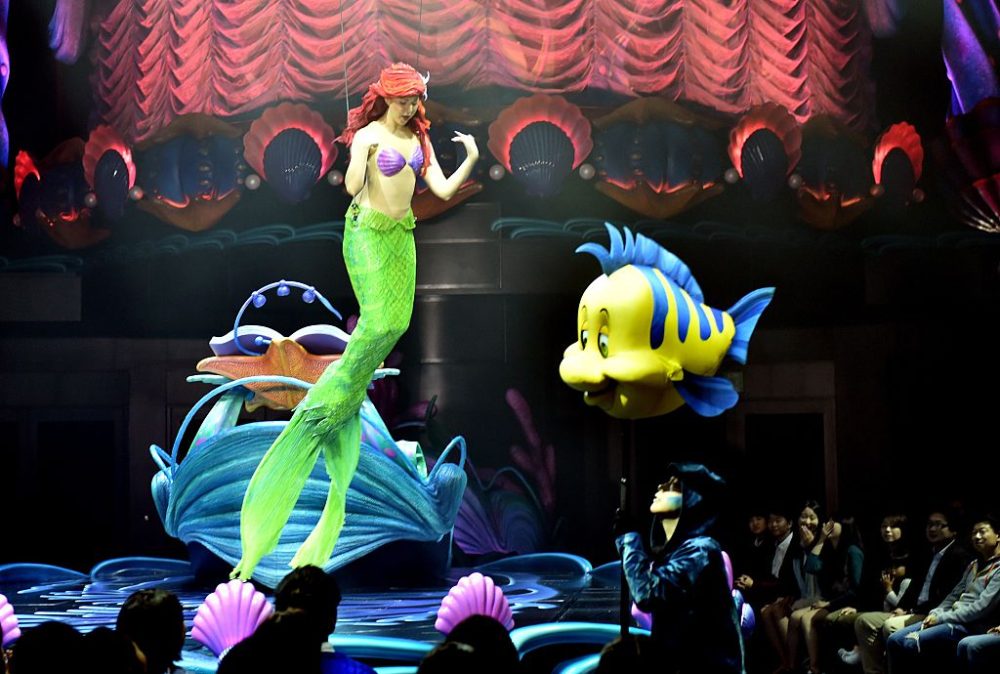“I do not think we do our children any favors by pretending that slavery didn’t exist,” wrote Royal Academy of Dramatic Art chair Marcus Ryder, in a blog about the newly remade Disney adaptation of Hans Christian Andersen’s fairytale The Little Mermaid. “Setting the fantastical story in this time and place is literally the equivalent of setting a love story between Jew and Gentile in 1940 Germany and ignoring the Jewish Holocaust,” he wrote. Not to be outdone, the singer Paloma Faith wrote on Instagram after she’d been to watch the remake that, “As a mother of girls, I don’t want my kids to think it’s OK to give up your entire voice and your powers to love a man.” She went on to say that this isn’t what we should be teaching the next generation of women, referring to the fact that in the film, Ariel traded in her mermaid tail for a pair of legs in order to marry her prince and sail off into the sunset.
Wait until she hears about Sleeping Beauty, where Aurora gets raped. Or Beauty and the Beast, where Belle is held captive by a grizzly beast. Better yet, wait until she hears that fairytales aren’t real and mermaids aren’t real and literally no modern woman or even human woman will ever be faced with such a decision.
But in 2023, films aren’t made to be enjoyed. They are made to be picked apart and found problematic. They are made for people with a clipboard to check whether enough demographics have been represented. And they are made for people online to complain about or validate.
In fact, The Little Mermaid of 2023 remained largely faithful to its predecessor: a naturally defiant mermaid with a curiosity for dry land defies her father and falls in love with Prince Eric, shaking hands with her evil octopus aunty — the unbearable Melissa McCarthy — in exchange for her melodic voice. Sebastian the crab delivers perfect one-liners in his thick, Jamaican, probably not politically correct accent. And after a few battles and a passionate snog, everybody lives happily ever after.
But what has happened off-screen with The Little Mermaid has been less romantic. When the trailer for the film was first released, the hashtag #NotMyAriel picked up on social media. Sections of the public were apparently flabbergasted by how a dark-skinned Ariel could dare to take the place of the ivory-skinned and red-haired original Disney princess, because Disney princesses are real and should be cast appropriately.
Speaking to the Guardian, the actress playing Ariel, Halle Bailey, spoke of her pride in taking the role and her hope that such representation would be helpful to young black women. “If I would have had a Black mermaid [as a girl], that would have been insane, that would have changed my whole perspective, my whole life, my confidence, my self-worth. You’re able to see a person who looks like you, when you’re young? Some people are just like, ‘oh, it’s whatever,’ because they’ve had it their whole life. It’s nothing to them. But it’s so important.”
I can’t grasp why anybody gives two toots about what color skin a fictional mermaid has. This is a film about talking fish and magic curses. Must we delve into the psychology of a fictional “white privileged” prince? Pravina Rudra wrote that, “The Little Mermaid is crying out for a structural retelling drawing on racial dynamics,” adding that Ariel’s father “doesn’t want his daughter dating someone of a different race,” in which she is referring to the races of sea creatures and humans. Aren’t we all crying out for journalists to stop talking such crap?
It’s all so exhausting. The film has also been slammed by critics for not being progressive enough. Scuttle the seagull, who has been gender-reassigned to a female for the remake, has been at the center of controversy for rapping in the film, since that “appropriates black culture.” She’s a seagull.
Such criticisms are just as unnecessary, boring, and quite frankly one as ludicrous as the other. Some argue that the mermaids are overly exoticised and eroticized. Conservatives are apparently so out of culture war content that they have stooped to smearing a children’s film about a mythical animal that, I must remind you, doesn’t really exist. The supposed race-swapping and wokeness has led to a smear campaign so intense that IMDb has had to revamp its rating system for the movie due to around 13,000 people that have it ranked as a one-star film in a “review-bombing” attempt.
Then there’s Eric. Poor Eric, he didn’t stand a chance. A privileged white boy taken in by a black royal family who finds his soulmate, who happens to be black. Of course he’d be accused of fetishizing black women while simultaneously being attacked for not understanding Ariel’s journey. To make it worse, the actor has a double-barreled name, and a posh one at that: Jonah Hauer-King.
For someone like me, who spent their teenage years being too-cool-for-Disney and under the third-wave feminist impression that any woman willing to give anything up for a man was a pathetic weakling, it almost pains me to say that I enjoyed The Little Mermaid. Not only did I enjoy it, but I also blubbered like a baby when they set off together in a rowboat into the sunset. Because I simply watched it for what it was: a remake of a children’s film.
My advice to the critics and professional take-havers is to just relax and watch the movie without finding a way to “problematize” everything. We got no troubles, life is the bubbles, under da sea.
This article was originally published on The Spectator’s UK website.





















